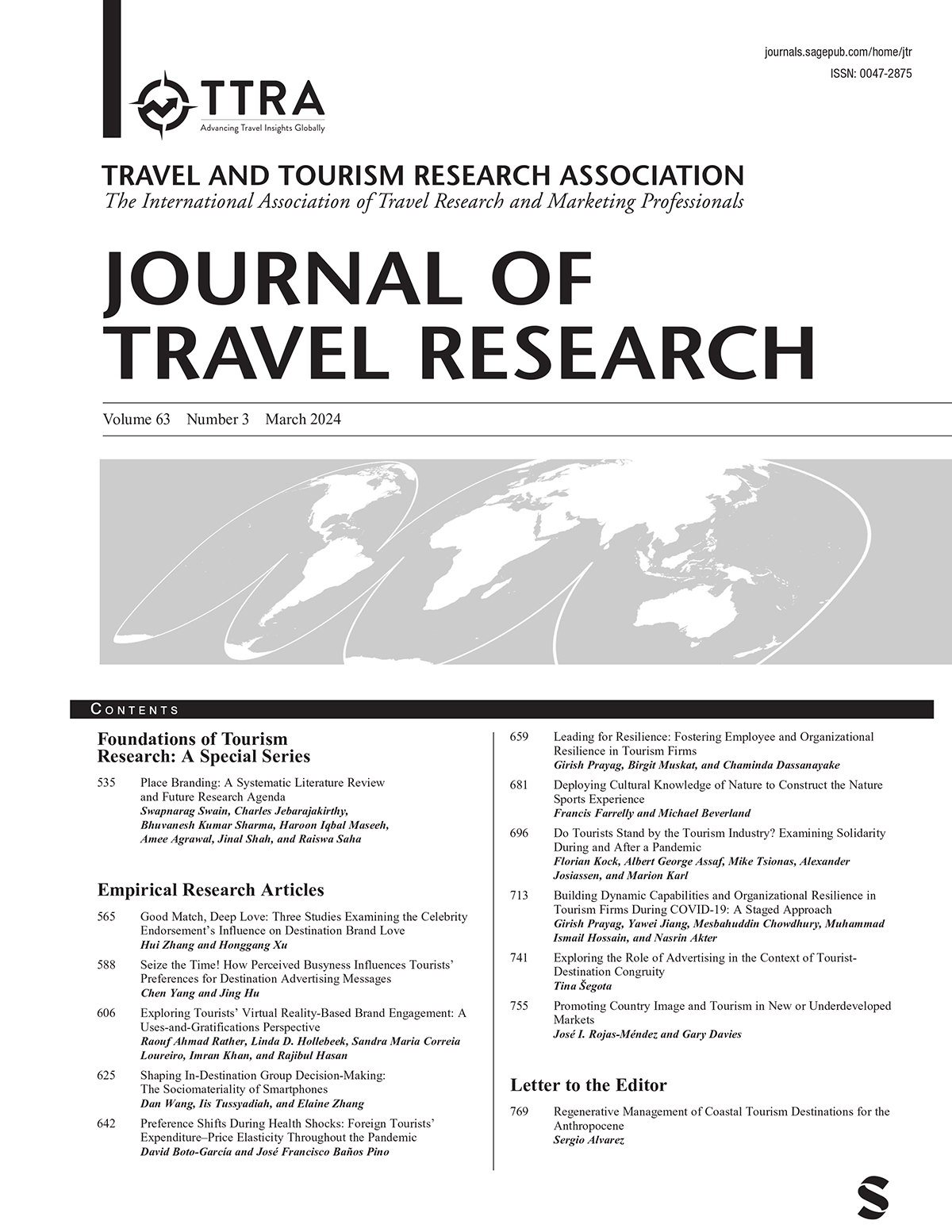Attribution Theory Revisited: Probing the Link Among Locus of Causality Theory, Destination Social Responsibility, Tourism Experience Types, and Tourist Behavior
IF 7
2区 管理学
Q1 HOSPITALITY, LEISURE, SPORT & TOURISM
引用次数: 8
Abstract
From a parochial perspective, destination social responsibility (DSR) is crucial in maintaining tourists’ loyalty, trust, and satisfaction. From a broad sense, destination social responsibility could play an essential role as an attribution shifting mechanism inside tourists’ mindsets and differ according to tourism experiences’ nature. To investigate this broad sense, the present study is the first to use locus of causality theory (LOC) to address this issue. By employing a quantitative method, we found that with the presence of DSR, tourists who externally (vs. internally) attribute positive events’ outcomes and have no intention to spread positive word-of-mouth (WOM) changed their attribution toward events with positive WOM. Moreover, adventure, business, and sustainable tourists are likely to perceive DSR advantages compared with leisure and cultural tourists by considering their internal LOC (internal attribution) and external LOC (external attribution). Furthermore, the study provided critical theoretical and managerial implications for tourism managers/scholars.归因理论再遇:探讨因果点理论、目的地社会责任、旅游体验类型与游客行为之间的联系
从地域的角度来看,目的地社会责任(DSR)对于保持游客的忠诚、信任和满意度至关重要。从广义上讲,目的地社会责任可以作为旅游者心态归因转移机制发挥重要作用,并根据旅游体验的性质而有所不同。为了探讨这一广义的问题,本研究首次使用因果关系轨迹理论(LOC)来解决这个问题。通过定量分析,我们发现,在DSR存在的情况下,那些对外(相对于对内)将积极事件的结果归因为积极事件的游客,以及无意传播积极口碑的游客,改变了他们对积极口碑事件的归因。此外,探险型、商务型和可持续型游客更容易通过内部LOC(内部归因)和外部LOC(外部归因)来感知DSR优势。此外,该研究为旅游管理者/学者提供了重要的理论和管理意义。
本文章由计算机程序翻译,如有差异,请以英文原文为准。
求助全文
约1分钟内获得全文
求助全文
来源期刊

Journal of Travel Research
HOSPITALITY, LEISURE, SPORT & TOURISM-
CiteScore
18.90
自引率
9.00%
发文量
66
期刊介绍:
The Journal of Travel Research (JTR) stands as the preeminent, peer-reviewed research journal dedicated to exploring the intricacies of the travel and tourism industry, encompassing development, management, marketing, economics, and behavior. Offering a wealth of up-to-date, meticulously curated research, JTR serves as an invaluable resource for researchers, educators, and industry professionals alike, shedding light on behavioral trends and management theories within one of the most influential and dynamic sectors. Established in 1961, JTR holds the distinction of being the longest-standing among the world’s top-ranked scholarly journals singularly focused on travel and tourism, underscoring the global significance of this multifaceted industry, both economically and socially.
 求助内容:
求助内容: 应助结果提醒方式:
应助结果提醒方式:


